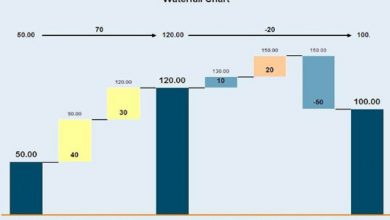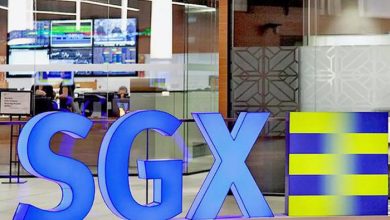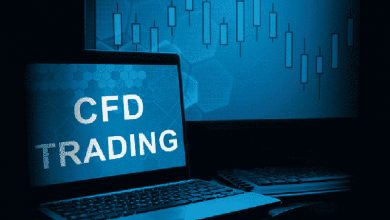
The connection between currencies and stocks is extremely extensive when it comes to financial sectors because their complex relationships affect each other and that influence is seen everywhere. Market‐wide investor attitudes, trading approaches, and stock market prices are quite sensitive to exchange rate movements. Investors, traders and business entities gain significant market intelligence about how these domains interact in the marketplace. This article studies the impact of the influencing market factors of the marketplace on currencies and stock markets.
The Role of Exchange Rates in Stock Market Performance
Differently, variable exchange rates show the typical changes in the value relationships of currency units as other currencies regarding economics and political support. Changing currency exchange rates creates fluctuations in corporations’ revenues, decreasing revenue margins and depreciating stock prices that lead to global market expansion in corporations.
As the U.S. dollar is powerful today, American exported products are expensive for international buyers. Since a devaluation increases the amount purchased internationally, it puts the economy in better conditions for businesses to function; this results in the stock market going up. Organizations find it more expensive to obtain imported products and materials because of the global decline in exchange rates between domestic and foreign currencies. Effects produced by exchange rate movements work upon stock market prices as well as market-wide performances.
Strategies to Mitigate Currency Risk in Stock Market Investments
If there are foreign investors, we assume that they do operate in the markets international then they have to actively manage currency risk exposure. Fluctuations in the values of foreign stock markets come from plus and minus in foreign currency market values that caused by the investment holdings. There are several methods to minimize currency depreciation and appreciation risks that exist on the market.
- Future options, forward contracts and foreign exchange derivatives in financial markets become tools used by customers to protect themselves from currency effects. Investors receive specific financial instruments with the purpose of stabilizing the currency rates, because this will protect investors from arbitrary changes of the exchange rates.
- Investors can invest in many different regions and asset categories so as to minimize the currency exchange rate unpredictability at one exchange rate. The diversification of investments in global assets enables investors to allocate funds on home assets and overseas property and hence manage the exchange rate risks through their diversified geographical strategy.
- A variety of currency hedged investment opportunities are provided to investors through the exchange traded fund (ETF) and mutual fund. Within these funds, the system automates the management of the exchange rate risk, so investors are not concerned with currency during the stock market performance.
- Natural hedging techniques used by companies on their international operations, in splitting their revenues and expenses, between similar currencies balances, contribution to the revenue and earnings of the company among international operations. Because investors are better off investing their funds into corporations with many global places for the purpose of deterring the choice of a single currency exchange rate.
- The point about detecting future risks is for investors who routinely analyze currency patterns, economic statistics and/or central bank regulatory changes. “by using the services of MT4 (MetaTrader4) stock brokers, users can access live data, multiple technical analysis instruments, as well as market expert information to make quick and well-informed decisions.”
Such methods allow investors to remove the effects of volatile currency exchange markets as they seek global stock market potential.
How Currency Fluctuations Influence Investors and Traders
Differences in the direction of currency movements present either market benefits or threats for investors and traders. Currency depreciation helps countries that have a strong currency to lose capital to stable economies, however, foreign investments get channeled into the stock market of such countries. Since global traders invest overseas, changing exchange rates make the monetary value of their investment change, they need to evaluate currency market movement. It depreciates the value of U.S. stocks purchased by European investors, without changing stock prices.
Planned forex transactions allow tax exempt investment funds and institutional buyers to protect themselves from risks related to currency volatility. MetaTrader4 stock brokers provide professional traders with the platform that allows for efficient stock and forex trade, and implementation of analytical tools and automated trading strategy.

Impact of Central Bank Policies on Currencies and Stock Markets
Stock markets and currency movements are controlled by the National banks.
Central banks use monetary policies for changing interest rates and quantitative easing measures to control exchange rates and create a market liquidity. Interest rate rise and its effect on strengthening currency curtains, but at the same time it reduces stock performance because it causes money to flow in and borrowing costs to rise. Currencies are weakened by lower interest rates and have a favorable effect on the stock market, which is accessible to the expansion of credit. Quantitative easing by central banks to add money to the economy creates a weakness in currency markets and increases in the value of the stock market as investors seek higher returns on equities.
Geopolitical and Economic Events Affecting Currency and Stocks
Consequently, conflicts trading tensions, social unrest, and plummeting economic stability cause all major disturbances in currency markets and the stock market system. For instance:
- When major economies create trade tensions, international trade related companies experience adverse economic effects, thus causing the currency value to go down.
- Funds exit the country through financial flight as a result of political instability, which brings about falls in the markets and unpredictable currency change trends.
- In economic downturns, central banks will take actions that affect investor and market reaction as well as exchange rates.
The Role of Currency Correlations in Stock Trading
A few of the currencies and financial markets exhibit patterns of related movement. The favorable conditions of the Japanese stock market are generated when the Japanese currency exchange rate decreases the value of the yen because such a thing makes Japanese exports more attractive for participation in the external market. Emerging market stock performance generally gets hit when the U.S. dollar is strong. If investors achieve currency stock correlation insights, they become more effective at the distribution of assets between stocks and the management of investment risks. Clients can be able to monitor developing market situations, allowing them to change their investment procedures.
Conclusion
The movement of feelings immediately changes the currency market, as such moves affect the profitability of business, and make adjustments to the market value. Profitability in these market dynamics will thus require close currency exchange rate tracking as well as central bank monetary policies. Analytical knowledge of the stock price implications of exchange rates should enable investors in businesses who operate as professional investors to base their critical trading decisions on.
Investors can now predict the market shift by combining insights into economic worldwide progress and geopolitical trends with central banks’ financial actions. The effectiveness of investors’ financial decisions will depend on proper knowledge because they will minimize the risks, realize profitable opportunities and make strategic changes while the market is changing.
Follow – https://financialapple.com for More Updates




